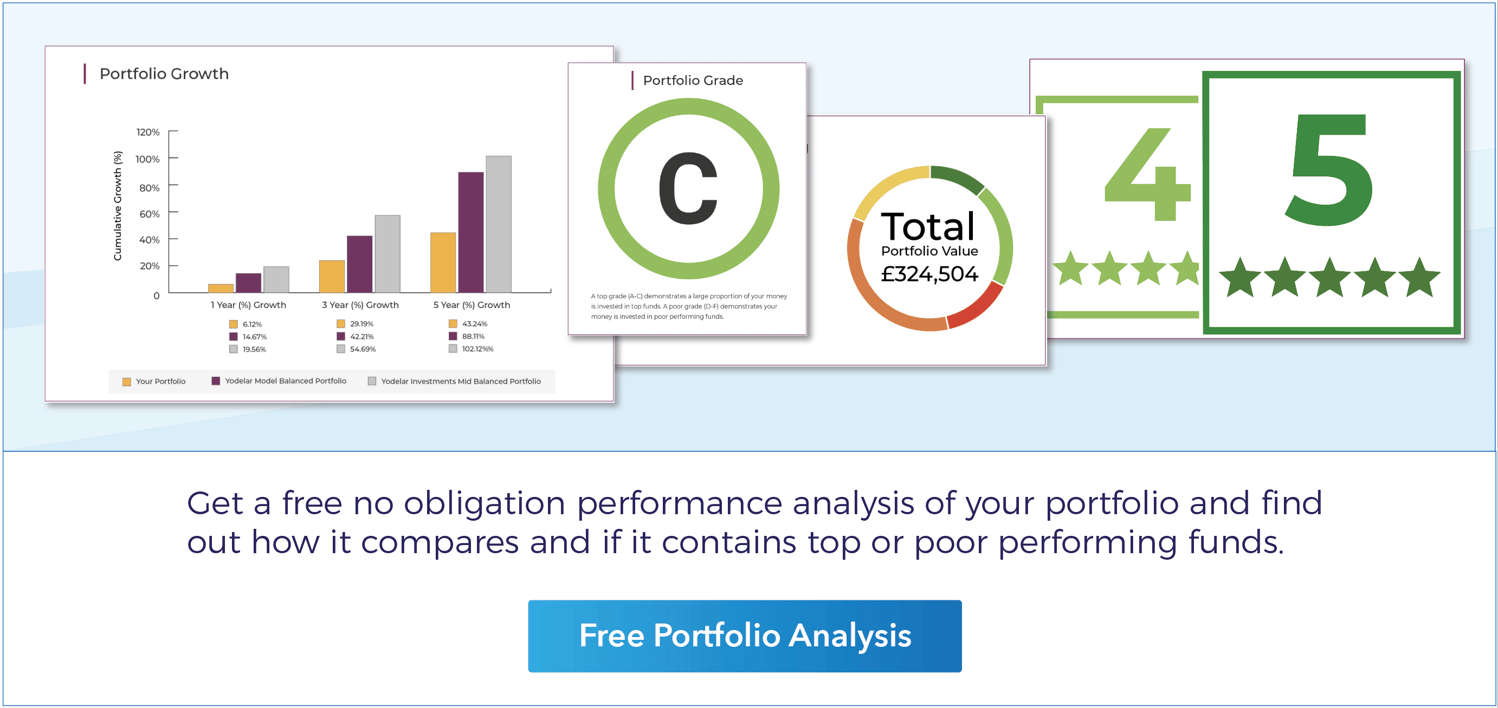- Avoid the most costly mistakes that can derail your investment success and hinder achieving your financial goals.
- Discover the importance of understanding your true investment time horizon and how underestimating it can lead to suboptimal returns.
- Learn how to stay disciplined and avoid emotional decision-making that often plagues investors during market volatility.
- Understand the pitfalls of restricted investment advice and the benefits of an independent, unrestricted approach.
- Gain insights into the power of diversification and the risks of over concentration in certain asset classes or sectors.
Investing is a strategic endeavour that demands careful planning, fortitude, and informed decision-making. While some level of risk is inherent in investing, a successful investment journey necessitates avoiding certain pitfalls and considering various factors.
If an investment strategy is managed efficiently, even after a negative market cycle, one can still reasonably expect to meet their medium to long-term objectives. The true challenges lie not in the ebbs and flows of investment cycles but rather in avoiding mistakes that can all too often negatively impact investment outcomes.
In this article, we will highlight the most costly mistakes that investors make, how to avoid them, and how to efficiently maximise your investments.
Underestimating the Asset Time Horizon
People often underestimate their life expectancy, which can lead to the mistake of underestimating their time horizon. For example, based on a 55-year-old planning to retire at 65 - if they invest based on a 10-year time horizon – despite reasonably expecting to live another 25 years – they might place a big part of their portfolio in fixed interest or cash to reduce short-term volatility, an asset allocation that may not generate enough growth to support future cash flows, if their time horizon proves longer than they thought. Forgoing the long-term growth a higher equities allocation could yield can increase the risk of portfolio depletion. Those who realise this too late may have limited options to reposition their portfolio for cash flow in old age.
Understanding time horizons can also help investors avoid behavioural errors, such as selling equities amid short-term market drops. While downturns are never easy, the knowledge that one's money has many years or even decades to work for them can help reduce stress and prevent panic-selling before a rebound.
If investors underestimate their investment time horizon, they may invest too conservatively, placing a significant portion of their portfolio in fixed interest or cash to reduce short-term volatility. However, this asset allocation may not generate enough growth to support future cash flows if their time horizon proves longer than anticipated. Forgoing the long-term growth potential of equities can increase the risk of portfolio depletion and outliving their assets.
Book A No Obligation Call With A Yodelar Adviser
Panic-selling During Short-Term Downturns
Understanding time horizons can also help investors avoid behavioural errors, such as selling equities amid short-term market drops. While downturns are never easy, the knowledge that one's money has many years or even decades to work for them can help reduce stress and prevent panic-selling before a rebound.
To avoid this mistake, investors should remind themselves of their long-term time horizon and the potential for equities to recover and generate higher returns over an extended period. This mindset can help them stay invested and avoid making emotional decisions that could jeopardise their long-term goals.
By accurately determining their time horizon, considering various factors that may extend it, and aligning their asset allocation and investment behaviour with their true time horizon, investors can increase their chances of reaching their long-term financial goals and avoid common pitfalls.
Book A No Obligation Call With A Yodelar Adviser
Overreacting To Market Downturns
It is essential not to allow emotions to dictate your investment decisions. When the market is falling, it is crucial to remain calm and avoid making hasty choices based on fear. Take a moment to reflect on the reasons behind your initial investment selections, and refer back to these reasons when feeling unsettled by market fluctuations.
By contemplating how you might react to a market correction in advance, you can potentially prevent yourself from making costly errors, such as selling shares at a loss instead of waiting for the market to recover. It is important to remember that corrections are an inevitable part of the investment landscape and will occur from time to time. Although these events can be unsettling, maintaining composure may be the most effective way to safeguard your investments.
It is worth noting that no investment strategy will consistently outperform in every reporting period or under all market conditions. While it may be unpleasant, it is reasonable to expect some periods of underperformance. By remaining level-headed and focused on your long-term investment goals, you can navigate market downturns with greater confidence and resilience.
Avoid Emotional Decisions
It is crucial to remain committed to an established investment plan, especially during market downturns. Your portfolio's strategy has been carefully designed to align with your risk tolerance and time horizon, making it essential to stay the course during periods of volatility.
However, if you have previously reacted to market declines by selling investments or have not yet implemented a strategic asset allocation, book a no obligation call with an adviser who can develop a well-structured, diversified portfolio that is tailored to your unique needs and goals, helping you navigate market fluctuations with greater confidence and peace of mind.
A sound investment strategy is designed to weather various market conditions over the long term. By staying committed to your plan and regularly reviewing your portfolio with a trusted financial advisor, you can work towards achieving your financial objectives while managing risk effectively.
Stay Calm
The first thing to do when volatility is high is to stay calm. It can be easy to work yourself up into a panic when stocks are falling, but this won’t help you. Making calm, rational decisions is one of the keys to long-term investing success. Remember – you haven’t actually lost money until you sell. Stocks will recover, as they have historically done 100% of times in the past.
Stay Focused
Uncertainty is an inherent aspect of financial markets, and it is impossible to predict the severity or duration of market turbulence with precision. While some periods of volatility may be short-lived, others can persist for an extended period. Regardless of the challenges that lie ahead, the most critical factors in navigating market fluctuations are maintaining a well-diversified portfolio and demonstrating perseverance over the long term.
It is essential to recognise that investing is a long-term endeavour. While short-term market movements can be unsettling, it is crucial to maintain a steadfast commitment to your investment strategy. By focusing on your long-term financial goals and resisting the temptation to make impulsive decisions based on short-term market fluctuations, you can increase your likelihood of success over time.
Book A No Obligation Call With A Yodelar Adviser
Restricted Advice Limits Your Investment Options
Restricted advice can significantly limit the range of investment options available to investors. When fund management firms offer restricted advice, they typically confine their clients' portfolios to a narrow selection of their own funds. This practice can hinder the ability to meet performance objectives, as no single fund management firm consistently offers top-performing funds across all core asset classes.
The Importance of Independent Financial Advice
Independent Financial Advisers (IFAs) have the ability to consider and recommend a wide range of investment funds from across the market, providing unbiased and unrestricted advice tailored to their clients' needs and objectives. In contrast, restricted advisers often use their restricted status to promote their own products, platforms, and investment funds. These firms may earn higher margins by selling their own products, while exposing clients to a limited range of potentially poor performing and more expensive options.
Benefits of Unrestricted Investment Advice
We strongly believe that having the freedom to explore the market without being tied down to fund managers allows investors to take a versatile approach to investing. This freedom enables investors and their advisers to select funds based on merit, which we believe is important in obtaining high level portfolio efficiency and performance.
Overconfidence
Investing can be an emotional rollercoaster as you watch the markets rise and fall. This emotional involvement often leads to cognitive biases that cloud judgement and make it hard to make rational, impartial decisions.
One common bias is overconfidence - focusing on your successes while minimising or ignoring mistakes.
To avoid such biases it's essential to create an investment approach detached from emotion. This relies on data-driven insights and impartial analysis to make informed decisions for your financial future.
Three crucial elements self-investors often mismanage are investment risk, portfolio diversification, and portfolio rebalancing.
A recent example from our research team highlights the importance of these factors. Through our complimentary portfolio analysis, we examined an investor who viewed themselves as having a mid-level risk strategy. Although their recent performance was high, boosting their confidence, a senior adviser found the portfolio was concentrated in a single asset class and industry sector.
This meant the portfolio's performance depended entirely on that one sector. While strong sector growth can lead to high rewards, any market or sector decline would cause the entire portfolio value to drop substantially. So despite the investor's self-assessment, the portfolio actually exhibited very high risk.
This underscores the need for diversification across assets, proper risk management, and regularly rebalancing to ensure investments align with goals and risk tolerance. Working with experienced professionals and relying on objective data can help investors make more informed choices and better navigate the emotional challenges of investing.
Book A No Obligation Call With A Yodelar Adviser
Impatience
Warren Buffett said: “The stock market is a device which transfers money from the impatient to the patient.” Patience will reward investors. In fact, it is often viewed as the most important strength of successful investors.
Many people believe that knowing when to buy and when to sell is the secret of successful investing. The truth is that no one knows with certainty when markets will rise or fall. Trying to time the market is very seldom successful. It’s far better to use time to your advantage. The sooner you can start investing, and the longer you can invest for, the more likely it is for you to achieve your financial goals, regardless of any short-term blips. Remember, even the best funds will have periods of underperformance that will test the patience of investors.
If we look at any quality fund with a long term history and break the funds performance into segments, they will show periods of underperformance. A lot of investment mistakes are made during periods when funds within certain sectors underperform. For example, a fund that lost a sizeable portion of its value over a relatively short period can test the resolve of investors and warrant many to switch funds. But when looked at over a longer period, almost all quality funds will have delivered above average sector returns - often more than the funds they were replaced for.
An example of this can be seen with the Janus Henderson Global Technology fund, which is a technology focused fund with a history of strong performance in its sector. However, in 2022 technology funds suffered a sharp downturn which prompted many to dump funds like the Janus Henderson fund in favour of alternative funds. For such investors the chart below may suggest, when compared to MSCI All World Index average, this was a good decision.

However, the situation looks completely different when looking at the funds' performance over a longer time horizon. Since the end of 2022, the Janus Henderson Global Technology fund has recovered its losses and subsequently outperformed the MSCI All World Index.
The chart below shows the performance comparison over the most recent 5 year period.

While one year may seem like a significant duration for some investors, particularly during periods of market volatility, this is a relatively short timeframe in the context of investing. As previously mentioned, having the assurance that your investments are being managed efficiently and adhering to industry best practices can instil confidence. Investors with this knowledge find it easier to weather short-term underperformance, as they maintain conviction in the long-term potential of their investments. Conversely, those lacking such confidence and knowledge may rashly sell off funds that have temporarily underperformed, a decision that often proves more costly over an extended investment horizon.
By maintaining a disciplined, long-term perspective and relying on professional expertise, investors can better navigate market fluctuations. Hasty reactions driven by temporary market movements, rather than a well-defined investment strategy, can jeopardise long-term goals and erode portfolio returns in the long term.
Poor Diversification
Ignoring the importance of investment diversification is, like ignoring the risks in investing. The most crucial component of investing is diversification.
A portfolio that lacks diversification is more likely to fail in reaching long-term investment objectives. The most efficient way to have a portfolio that generates suitable levels of risk and return in various market situations is by utilising diversification across asset classes.
Investors frequently believe that investing heavily in a single security or sector would maximise returns. However, this strategy can result in severe losses when market conditions change unfavourably. Too much diversification and being overly exposed to risks can also harm performance. It's important to strike a balance for the results.
It's important to recognise that no single equity style, sector, country or region consistently outperforms others. Global diversification is essential as it spreads risk across countries and currencies to mitigate the risks associated with investing in one region or country. Therefore creating portfolios with diversification is crucial for achieving success, in long-term investments.
Spreading your risk across different countries protects investors from country-specific conflicts and regulations. Therefore, if one country faces economic challenges because of regional factors, the impact on your overall portfolio is minimised. This approach of spreading investments not only provides stability but also strengthens the resilience of investment portfolios. Identifying the best-performing funds within each asset class is a critical part of this process.
Book A No Obligation Call With A Yodelar Adviser
Trap of Overloading
Many investors who fail to diversify their portfolio asset allocation model fall into the trap of overloading - which is to become over-reliant on one fund, region or market.
In pursuit of growth, investors can be tempted to heavily invest in well-performing sectors or regions, neglecting a diversified asset allocation. But this can lead to over-concentration, where the portfolio becomes overly weighted towards one asset class. While the intention is to benefit from that market's current performance, it actually increases risk by exaggerating losses if that sector or region declines.
Over-concentration has become prevalent in many UK investor portfolios, partly due to advisers over relying on funds with a global strategy like multi-asset or global equity funds. Such funds are often heavily tilted towards one region, lacking true global diversification.
The table below illustrates the annual performance of the six important investment sectors from 2017 through Q1 2024.
As identified in the table no single sector consistently outperforms others year after year, which helps to illustrate the importance of diversification.
Strategic and Diversified Investing for Long-Term Success
Like many things in life, investing can be challenging. But those who adhere to a defined, long-term strategy and have a disciplined, realistic attitude to investing are usually the ones that accomplish their goals efficiently. When this is followed, better results can be obtained.
Investors can strengthen their investments and achieve better results by being aware of the costly mistakes described in this article and taking appropriate steps to avoid them.
Having a strategic investment approach and maintaining a diversified portfolio are key aspects of managing risk and achieving success, in long-term investments.
Remember, no single sector consistently leads in performance, so diversifying across various asset classes and regions can help stabilise and grow your investments over time.
Identifying the best performing funds within each asset class will also contribute to achieving optimal returns and safeguarding your financial future.
Book A No Obligation Call With A Yodelar Adviser
Get a Free Performance Analysis of Your Investment Portfolio
At Yodelar, our investment experts are equipped to guide you through the complexities of investing, ensuring that you meet your financial objectives with precision and efficiency.
Our portfolio development is grounded in extensive research and analysis, involving the rigorous evaluation of over 100 fund managers, tens of thousands of funds, and more than 40,000 investment portfolios.
Our ongoing research reveals that only a small fraction of funds and fund managers consistently achieve top performance, while over 90% of the portfolios we analyse include funds that consistently underperform.
By simply submitting a statement or spreadsheet of your investments, our team will provide you with a free performance analysis.
We offer a detailed assessment of your portfolio, evaluating each fund's performance and providing an overall review. This analysis helps to easily identify areas for improvement, enabling you to refine your investment strategy.
Book a no obligation call with our team today and find out how we can help you grow your wealth efficiently and craft the best investment portfolio for your needs.



















